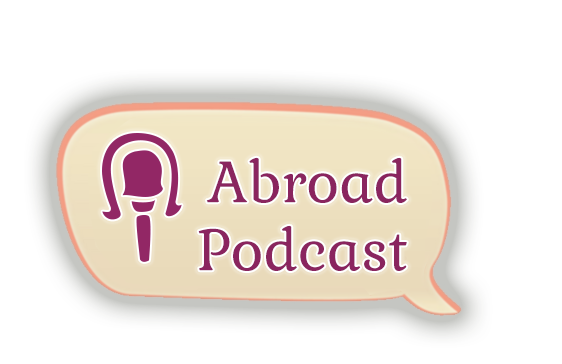The post on my site which gets the most hits is one I wrote about depression back in February. It wasn’t a long post or a particularly informative one – but what it did say was that depression in expats is common, it’s not something to be ashamed of and it’s something that we should all acknowledge as a very real part of expat life. What the reaction to the post – both the immediate reaction at the time of writing, and the amount of hits that post has had since – told me is that this is a subject that needs a lot more attention.
So I extremely grateful when an expert in this area agreed to be interviewed for this blog, and not only to discuss some of the reasons why expats are so vulnerable to depression but also to help with some advice for those who think they may be affected. Anita Colombara is a mental health specialist with a particular interest in the International Community. Her own background and experience, as well as her training, has helped her set up her on-line counselling service and to be in a great position to offer advice to the globally mobile. I hope many people will read her advice – please share this post if you can because I know, from how many people find my blog by typing in the words expat and depression, that this is a topic more people need to be aware of.

Anita, thank you for agreeing to this interview. First of all could you tell me a bit about yourself, your background.
I grew up in Washington D.C. with Asian parents. I enjoyed both the American and immigrant experience as I felt part of both and neither worlds at the same time. I also had friends who hailed from every corner of the globe. As an adult, I married an Italian/Ecuadorian who spent summers with family on two different continents. You could say that, since childhood, I’ve been embracing the world, determined to be a global nomad when I grow up.
I’ve had the privilege of visiting and living in over a dozen countries. For four years I lived in Cambodia, gave birth to my second child in Malaysia, and later, enrolled my children in public school in Beijing. Throughout these adventures, I’ve experienced both the joys and challenges of being an expat. I love acquiring new languages, assimilating to new cultures, and feasting on new cuisine. However, I have also struggled with adjustment issues – cultural shock, loneliness, and confusion; with mental health issues – post-partum depression, anxiety, and vicarious trauma; and with relational issues – misunderstandings with locals and colleagues, marital strain, and difficulties parenting my two young children. I’m guessing many of your readers can relate.
How did you come to be working in mental health and why do you think it’s important for the ex-pat community?
I started out as a social worker in the States about 20 years ago. I worked in a variety of settings focusing on issues related to domestic violence, sexual assault, human trafficking and refugee resettlement which I then implemented with my work in Cambodia.
However, during my years in Cambodia, and later in other settings, I saw that ex-pat and humanitarian worker’s needs were being severely neglected. As I mentioned, I’ve struggled living overseas. And I know I’m not alone. I’ve heard numerous accounts from those experiencing trauma, disillusionment, confusion, compassion fatigue, depression, anxiety, loneliness, etc. I’ve also seen too many marriages broken and families strained due to ignoring conflicts rather than addressing them in a healthy way. I saw the vital need for my peers, who live and work internationally, to have access to quality, professional counseling.
When I returned to the US in 2008, I enrolled in the University of Washington School of Social Work, focusing on trauma intervention and therapy.Since graduation, I’ve have been serving as a mental health therapist at a community based agency in Seattle, WA. However, my heart is still with the international community. That is why I founded Remote Access Mental Health. My vision is to see globally mobile people thrive no matter where they are. My mission is to provide on-line professional mental health counselling for this unique population.
Why remote counselling? How would the globally mobile benefit from it?
When I lived in Cambodia, there were few counselling services for ex-pats. The few professional therapists in town were often booked. Moreover, with the ex-pat community being so tight, there was a high probability that the potential client and therapist already knew one another. This made professional boundaries difficult and therapeutic relationships awkward. This is an issue in many locations, not just Cambodia.
Services offered by host or sending agencies have their own set of potential complications. A typical scenario is that of a field staff person being assigned an agency affiliated counselor when supervisors become concerned regarding mental health or other issues in that individual. Many times, since the counselor is employed by the agency, they give their assessment to the supervisor. This is not always a bad thing. However, more often than not, I’ve heard from field staff who have been hurt by their agencies when they felt that client-therapist confidentiality was violated. In some cases, this resulted in the sudden expulsion from the international arena in order to receive “treatment” for unresolved mental health issues, family conflict, moral failure, etc. Individuals and families are left feeling like they’ve failed, betrayed by their employer, further isolated, and sink deeper into disillusionment, depression, or resentment.
With that said, I know a lot of ex-pat individuals and families who would benefit from an unbiased professional who could provide support where they are. With high speed internet service becoming increasingly available, even in the most remote places, this is becoming a possibility. Although in-person counselling may be preferable, video conferencing is a viable alternative given the hectic travel schedules and lack of local services that many expats experience. Professional counselling is now within reach!

What kind of mental health services do you provide specifically for the globally mobile?
First off, I realize the term “mental health” often turns people away. They automatically assume I’m talking about crazy people with paranoia or are detached from reality. On the contrary, most of the people I work with are completely normal.
In short, I apply the same evidence-based therapeutic approaches that I use with my clients in my in-person practice. I first perform a thorough assessment to determine what the client’s needs, goals, strengths and natural resources, and desired treatment modality are. I then work together with the client to flesh out a treatment plan accordingly. I provide tools to address struggles as well as help create a plan for long term self-care.
The difference with my remote access clients is that I tailor to the unique needs of those who travel or live internationally. I am particularly interested in supporting the globally mobile population, including TCKs and ATCKs, that want to address trauma, panic attacks, anxiety, depression, and stress due to unresolved issues or culture shock and re-entry (reverse culture-shock) adjustment.
What are the signs that expats need to look out for if they think they might be suffering from depression, PTSD or other mental health issues?
Depression is different than sadness and normal life’s lows. It involves intense feelings of despair with little or no relief. It interrupts one’s life, work, relationships, eating, sleeping, and ability to engage in once enjoyable activities. Typical signs of depression are:
- Loss of interest in relationships or activities you once enjoyed
- Loss of energy, feeling tired all the time
- Sleeping more than normal or inability to sleep
- Change of appetite, overeating or lack of eating
- Difficultly concentrating or finishing tasks
- Lack of motivation
- Lack of personal hygiene
- Ruminating on negative thoughts
- Feelings of hopelessness, helplessness, emptiness, apathy, failure
- Feeling more irritable, short-tempered, angry, aggressive
- Loathing – overly critical or self and/or others
- Consuming more alcohol than normal or increased drinking alone
- Engaging in reckless or unhealthy behavior
PTSD, or Post-Traumatic Stress Disorder, is a condition following a traumatic event that leaves one with intense feelings of fear, anxiety, or loss of control. One may feel trapped in a constant state of danger or in a painful memory. Others may feel unable to “snap out of it” and feel disconnected from others and present reality.
Many of my colleagues engaged in aid and development work experience what is called vicarious or Secondary Traumatic Stress Disorder (STSD). Through repeated or long-term exposure to stories or observations of those suffering from traumatic events, one may develop symptoms similar to PTSD. These symptoms come in three main categories and can arise suddenly, gradually, or re-occur over time:
- Re-experiencing the traumatic event:
- Intrusive, upsetting memories
- Flashbacks (feeling like the event is happening again)
- Nightmares
- Feelings of intense distress
- Intense physical reactions when reminded of the event (pounding heart, rapid breathing, nausea, vomiting, muscle tension, sweating)
2. Avoidance and numbing:
- Avoiding activities, places, thoughts, or feelings that remind you of the trauma
- Inability to remember important aspects of the trauma
- Loss of interest in activities once enjoyed
- Feeling detached from others
- Feeling emotionally numb
- Lack of motivation
- Sense of a hopelessness or assuming premature death
3. Increased anxiety and emotional arousal
- Difficulty falling or staying asleep
- Irritability or angry outbursts
- Difficulty concentrating
- Hypervigilance (on constant “red alert”)
- Feeling jumpy and easily startled
Before reaching the point of needing to seek help from a counsellor like yourself, what can we do to help ourselves if we do find we are in this situation?
Self-care, self-care, self-care! I know too many good hearted people who are constantly looking out for others but neglecting to take care of themselves. Development workers, missionaries, and those on the front end of disaster relief for sure! The most important thing is to develop healthy habits and a personal Wellness Action Plan (I call these WAP for short). The second most important thing is follow through with your plan.
Your WAP should be comprehensive, including all aspects of your wellbeing – physical, emotional, recreational, relational, financial, spiritual, etc.
Your WAP should also be specific. It’s not enough to say, “I will exercise regularly.” What kind of exercise? How often? What time of the day? Where? This is especially important for the globally mobile since settings change and new locations may not accommodate to previous routines.
Lastly, your WAP should be realistic. For example, there is no point making a plan to exercise everyday if you know you’ll be on a plane two days out of the week. Make your plan attainable. Otherwise, you will find yourself giving up in frustration for not sticking to it.
Oh, and be kind to yourself. I tend to work with a lot of driven folks who are hard on themselves. Give yourself a break once in a while.
At what point would you recommend we need to seek further help from a professional such as yourself?
Negative feelings such as sadness, frustration, or stress are normal. But when they become overwhelming and interrupt daily function or lead to relational problems, it is important to seek professional help.
With that said, many people wait too long. It doesn’t hurt to seek professional help sooner than later. After all, even the healthiest among us receive physical check-ups. That is why I love assisting people in their personal WAPs to promote long-term wellbeing.
How can we support others if we start to recognize some of the symptoms of depression in them? In particular, how can we help our partners?
Often times, when a loved one is struggling, we may feel distraught or frustrated ourselves. It’s easy to go into advice giving mode or to withdraw due to feeling at a loss regarding how to help. However, the most important thing is your presence – being with them even if it just means holding them, crying with them, or sitting beside them in silence. Validate feelings instead of try to reason with them. Watch out for minimizing their pain, blaming and shaming. Educate yourself on the disorder so that you can better understand your partner, but be careful not to lecture them.
If your partner is reluctant to seek professional help, that does not mean you cannot seek help for yourself. A good therapist will be able to guide you through the process of assisting a loved one struggling with mental health.
Do you have any particular advice for children who might be showing signs of depression? How would this manifest in them differently than in adults?
The answer to this important question deserves an article itself. In short, children often act out what they cannot put into words. Often times, symptoms of depression, anxiety or PTSD in children are misdiagnosed as ADHD. Children often manifest troubling behavior such as difficulty focusing, defiance, difficultly regulating their emotions, hyperactivity, inability to calm down when aroused, lack of boundaries or risky behavior. They may engage in violent or self-harming behavior such as cutting themselves or hitting their head against a wall. Other children, may retreat, fall silent, even becoming mute. This is often the case for someone with PTSD. Again, disturbing behavior is a sign of a more significant, underlying issue that needs to be addressed.
Anita Colombara MSW, LSWAIC
Anita is a licensed Mental Health Professional by the State of Washington. After spending many years in Asia, she currently resides in Seattle, WA where she lives with her husband and two children and enjoys the natural beauty of the Pacific Northwest. She is the founder of Remote Access Mental Health LCC, providing on-line counseling for the globally mobile. www.remoteaccessmentalhealth.com
If you are or think you may be suffering from depression, or are vulnerable to depression, then please do talk to someone close to you and/or consider seeking help. As well as counsellors like Anita, charities like MIND can also offer online support and advice. I list other forms of support in my book the Expat Partner’s Survival Guide.
Photo credits: woman with key: Mary Lock at https://www.flickr.com/photos/wijen/; woman at table: Adi Sujiwo at https://www.flickr.com/photos/wijen/









